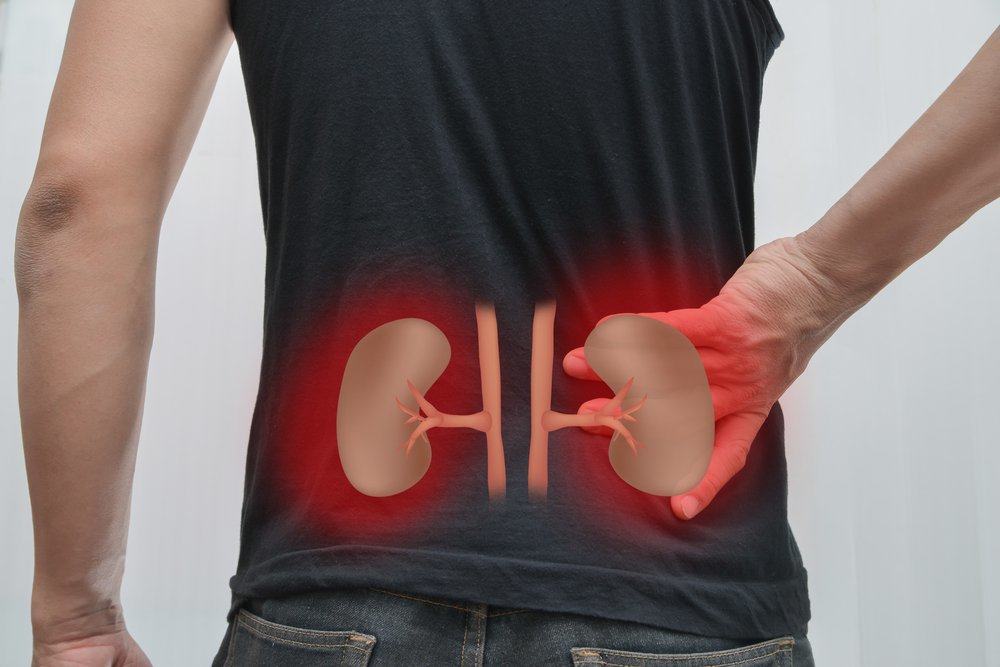Contents:
- Medical Video: LIVE IT: Reduce Risk of Heart Disease with a Mediterranean Diet
- What is the difference between the Mediterranean diet and other diets?
- High fat, but healthy fat
- Reasonable alcohol consumption
- Benefits of the Mediterranean diet for heart health
- Benefits of the Mediterranean diet to prevent diabetes
- Benefits of the Mediterranean diet for Alzheimer's disease
Medical Video: LIVE IT: Reduce Risk of Heart Disease with a Mediterranean Diet
Mediterranean diet is one type of diet that is famous in various parts of the world. This diet comes from the diet of countries located along the Mediterranean sea border. Although ethnic differences, economic conditions, and agricultural production cause little difference in the choice of food types, overall this diet has the same characteristics.
What is the difference between the Mediterranean diet and other diets?
Vegetables, fruits, nuts, and seeds are foods that are often consumed in the Mediterranean diet. Native Greeks are said to rarely consume red meat, and on average consume nine servings of fruit vegetables every day. You must have often heard about the benefits of vegetables and fruit for health. Rich in fiber, vitamins, minerals and antioxidants can help maintain your body's health. Antioxidants mainly function to counteract the bad effects of free radicals which if left unchecked can cause cell damage and increase your risk of suffering from various degenerative diseases.
Grains, especially wheat which are commonly used to make pasta or bread, are mostly in the form of whole grains or whole grain. Grains like this are better because they still contain complete vitamins and minerals. Unlike the grains that have been processed (such as white rice) or also called refined grain, because it has gone through various processes to maximize shelf life or improve the quality of appearance so that vitamins and minerals are deep refined grain has been reduced a lot.
Nuts are also a type of food that is widely found in the Mediterranean diet. Even though it's high in fat, most of the fat found in nuts is unsaturated fat which is actually good for heart health.
High fat, but healthy fat
One of the main principles of the Mediterranean diet is to replace daily fat sources, not reduce the amount of fat intake. In fact, most of the total calories consumed in this diet come from fat. The Mediterranean diet uses alternative sources of healthier fats, such as fat from nuts, and fats from olive oil where both contain more unsaturated fats. In contrast to hydrogenated meat and oils, both of which are high in saturated fat and trans fat. Olive oil is widely used in food typical of the Mediterranean region. Ranging from a mixture of salads, to basic ingredients dyed to complement eating bread.
Reasonable alcohol consumption
Although the benefits of alcohol for health are still questionable, non-excessive amounts of alcohol consumption are associated with a reduced risk of heart disease in several studies. The Mediterranean community includes alcohol in their daily diet, especially the type of alcohol derived from wine fermentation or wine. The amount consumed is not more than 150 ml per day for women and 300 ml for men under 65 years.
Benefits of the Mediterranean diet for heart health
The Mediterranean diet is famous for its benefits for heart health. Reducing the risk of heart disease, reducing blood pressure, and lowering LDL levels are some of the health benefits produced from the Mediterranean diet. This is because in the Mediterranean diet, it is emphasized the importance of the source of fat you consume. Most of the fat in this diet comes from unsaturated fats.
In a study published in the New England Journal of Medicine in 2013 found that 30% of cases of heart attacks, strokes, and other heart diseases could be prevented if those in the high-risk group followed the Mediterranean diet. This study examined how diet can have an effect on the risk of heart disease, and this study was also stopped sooner than scheduled because the results were very clear that the Mediterranean diet really can reduce the risk of heart disease, including those who are already dependent on blood pressure-lowering medication.
Benefits of the Mediterranean diet to prevent diabetes
Not only heart disease, diabetes can also be prevented by the Mediterranean diet. One risk factor for diabetes is being overweight, the Mediterranean diet can help maintain and even lose weight. In addition, the Mediterranean diet can also prevent you from suffering from metabolic syndrome, a condition that can increase your risk of suffering from various degenerative diseases.
A study published in the Diabetology journal in 2013 examined the diet of more than 20,000 people over 11 years, the results of this study suggest that those who follow the Mediterranean diet or daily diet approach to the Mediterranean diet have a 12% lower risk of suffering Type 2 diabetes mellitus later in life when compared to those who do not undergo the diet.
Benefits of the Mediterranean diet for Alzheimer's disease
One of the keys to Alzheimer's disease is cholesterol levels. Although it is not yet known how the cholesterol mechanism causes Alzheimer's, some theories reveal that diets that are high in fat and bad cholesterol can inhibit the process of thinking, learning, and remembering and the loss of a number of neurons and other signs of Alzheimer's disease. Other studies have revealed that high saturated fat intake doubles the possibility of suffering from Alzheimer's later in life. Even the consumption of small amounts of trans fat can increase Alzheimer's risk to 2 to 3 times greater. In contrast, consumption of unsaturated fats is associated with a reduced risk of developing Alzheimer's.
Changing the source of fat into healthy fat is one of the principles of the Mediterranean diet. This certainly can be very helpful in preventing or developing Alzheimer's disease. Not only is it specific in preventing Alzheimer's, a decrease in cognitive function can also be prevented because this diet is rich in omega 3 and omega 6 from whole grain, fish, olive oil, and nuts. Omega 3 plays an important role in brain function, including in the growth and development of the brain.
READ ALSO:
- Guide to Living a Blood Type Diet
- Mayo Diet: Effectively Lower Weight, But Is It Healthy?
- Is Gluten Free Diet Really Healthier?












